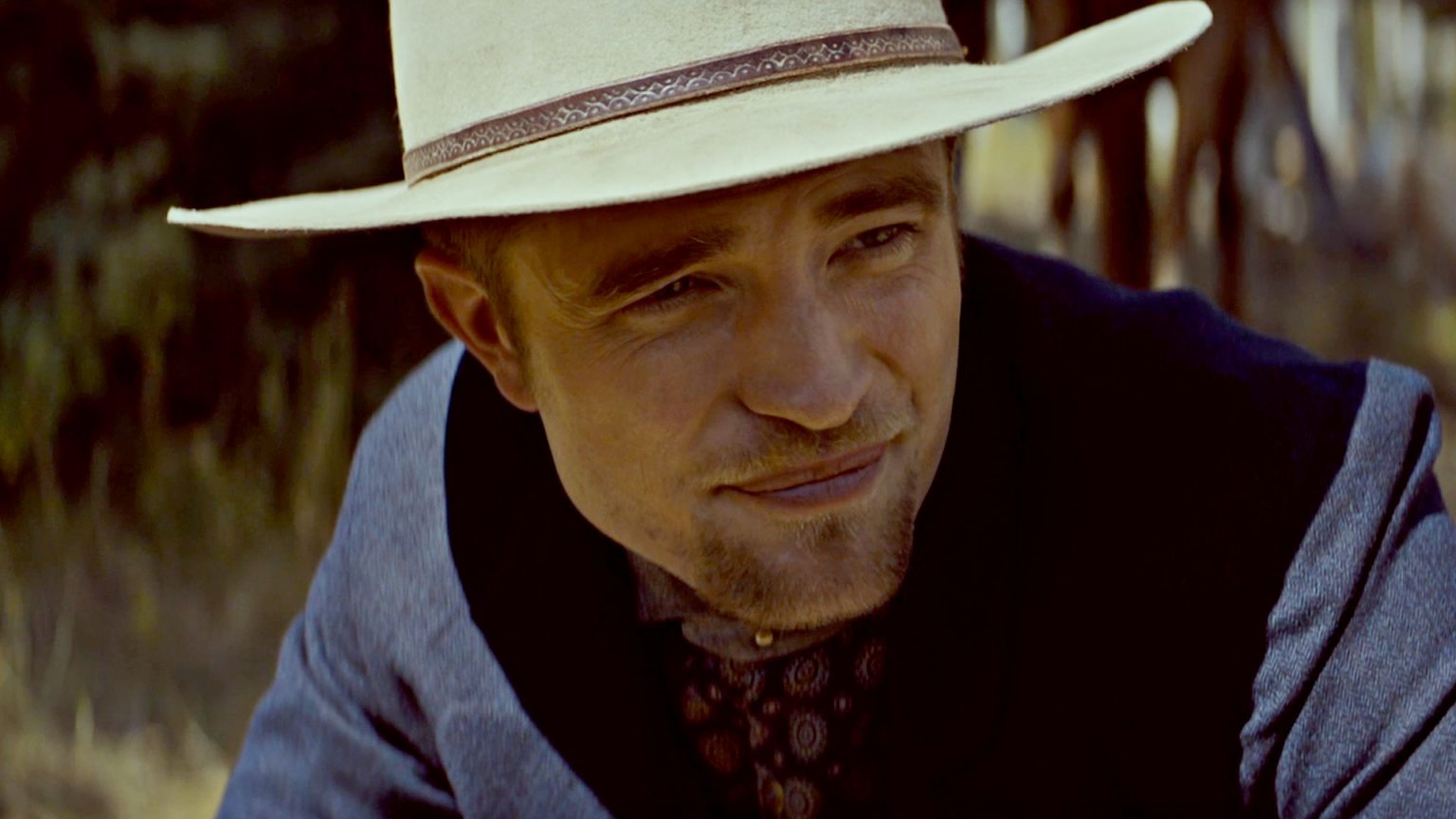We’re all familiar with the increasingly outmoded film trope of the “damsel in distress.” There’s a woman, usually young, maybe naïve, who has, through her own actions or not, found herself in a situation she can’t escape from on her own. Cue hunky leading man to save her. Well, that’s not necessarily the case in Damsel, the latest film from brothers David and Nathan Zellner (Kumiko, The Treasure Hunter; Kid-Thing). Set in the Old West, the film uses deadpan humor to reconceptualize the notion of the “damsel” to varying degrees of success.
But who is the Zellner brothers’ titular damsel? Presumably, it’s Penelope, played by Mia Wasikowska. Yet, far from being in distress, she’s a confident strong-willed person, one who doesn’t need help from anyone. In fact, it is the men in Damsel who are in desperate need of help. To begin, there’s the hopeless and pitifully naïve traveler, Samuel, played by Robert Pattinson in what is, after Good Time, the next installment in his series of somewhat unexpected roles. Samuel arrives in a prototypically rough-edged Old West town on a mission to rescue his supposed true love, Penelope, who he claims has been kidnapped. He enlists the help of a meek, alcoholic priest named Parson (David Zellner), to whom he promises a hefty sum of money in return for assisting in the mission and performing the wedding once Penelope has been rescued.
As he did with his portrayal of Connie Nikas in Benny and Josh Safdie’s Good Time, Pattinson is hard at work losing himself in an exaggerated character, and it represents another admirable step away from the heartthrob identity he’s been labeled with since co-starring in Twilight. Like other relentlessly handsome actors, the secret to Pattinson’s continued career success might be through character acting.
Even with Pattinson’s engaging and comical performance, though, the film tends to sag under its own weight. Running at nearly two hours, the story stretches out moments that could easily be condensed in favor of necessary plot and character development. While the humor in Samuel’s ineptitude repeats itself, the Zellner brothers could have spent more time building the character’s backstory. We see him wander into town in search of Parson, and we experience his silly interactions with the gruff townspeople, but these moments feel arbitrary and don’t really develop the character’s history. Throughout his time on screen, we know of little more than Samuel’s basic passion for Penelope, which makes it hard to latch onto his proclamations of love and to feel connected to his long journey into the wilderness with Parson.
Some of the pacings are purposeful, though. In a unique touch, we don’t meet Penelope until about halfway through the film. It’s here that a significant plot turn flips the story on its head. Saying much more than that would spoil a key moment, but, suffice to say, the self-reliant Penelope moves to the forefront of the story. It isn’t giving away anything substantial to say that, from the moment she appears, Penelope spends the bulk of the film fending off the varied advances of different men, including Samuel, Parson, a Native American, and a deadbeat cowboy.
It becomes apparent that the story isn’t about a typical damsel. The men try their hands at winning over Penelope, in spite of her continually reminding them that she doesn’t want or need them. In their own ways, they are the ones who end up in distress (Parson, for example, is terrified of being alone). They’re the helpless ones. It’s funny to watch their stupidity bounce off of Penelope, but the moments tend to repeat themselves. Wasikowska’s performance promises a unique spark, but the repetitive humor once again comes at the expense of character and plot development. It funnels Wasikowska’s talent through a one-dimensional prism, as she seems to have the same response over and over again.
Still, there may be a message in that one-dimensionality. What more can a woman do in the face of a relentless onslaught of male desperation, but simply reiterate herself and hope for the best? Though the Zellner brothers repeat this notion a lot, one can’t help but be endeared by what they have to say about female empowerment. Damsel serves as a commentary on what it means to be a woman, and what it means for women to have to navigate the advances and demands that men place on them.
It’s a shame that the execution falls short, but the story is not without hope. The Octopus Project’s score, with its electric banjoes and fiddles, adds a uniquely modern tint to Adam Stone’s cinematography, which is reminiscent of Unforgiven in its vivid portrayal of the Western United States. The Zellner brothers’ vision is clear and distinct, and their ambition with Damsel—which, like other revisionist westerns like Meek’s Cutoff and The Hateful Eight, reinvents the Western genre by passing it through the prism of twenty-first-century culture—is admirable. The film misses on some key levels, which is disappointing, but one can’t help but look forward to what comes next from them and see whether or not the Zellner brothers hit their stride with a film whose experience complements the potency of its message.




